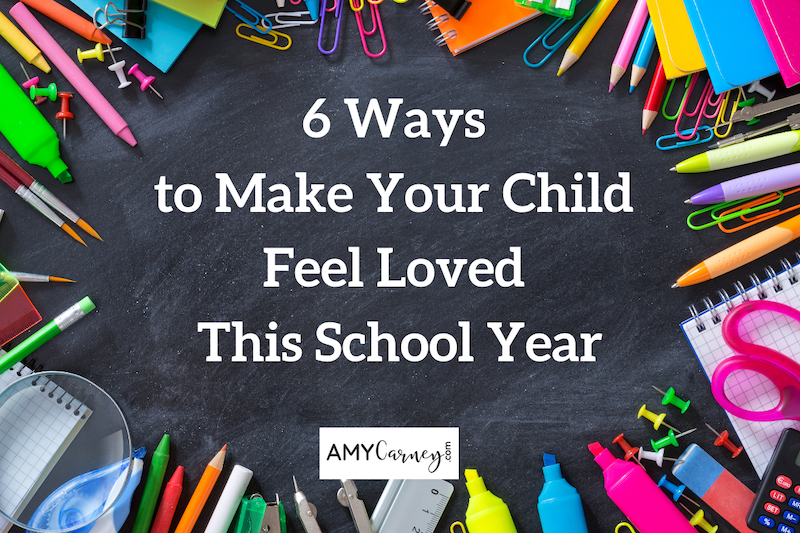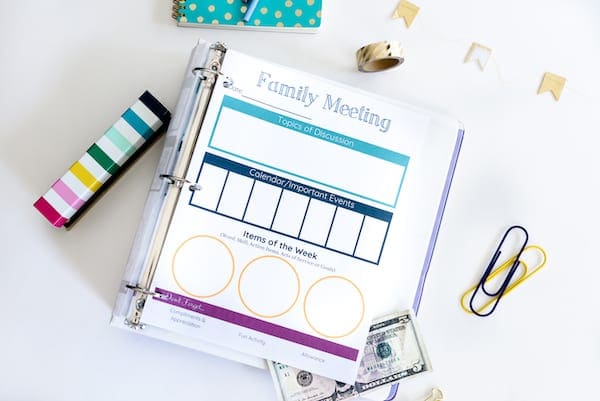As a mother, it can be difficult to feel like I’m giving everyone the attention they need or deserve. So, I’m always seeking out simple opportunities to celebrate each of my children so that they feel uniquely cherished in our family.
One choice we do have, despite our worldly circumstances, is the ability to make our child feel loved in our home this school year and beyond.
1. Light a Candle of Honor
One of our favorite family dinner traditions we regularly did around our dinner table when our kids were younger was the Candle of Honor.
Each night (or whenever you want), choose one child (or adult) to honor because of a positive character trait they showed or something they accomplished that day. Light a candle in front of your honoree, acknowledge why you chose them before the meal, and let them blow the flame out while everyone gives them a round of applause.
The candle of honor tradition is such a small, simple, and fun way to acknowledge and impact your family members.
Be prepared for younger children to get upset or complain when they aren’t chosen. Thankfully, this too shall pass as they learn that their turn will indeed come around. The Candle of Honor becomes a strong family tradition as you teach your children to celebrate one another regularly in your home.
2. Turn an ordinary moment into an extraordinary one
During Covid, our youngest got to go back in person to school first, so on the night before he headed back to the classroom, I threw a little after-dinner celebration focused on him.

- I googled how many days had passed since his last day of school before the pandemic shut everything down and wrote on a blank notecard, “After 192 days, you get to go back to school.” Yippee. Hooray. Whoo-hoo.
- After dinner, I lit the Candle of Honor and presented him with a slice of cheesecake (that Kneaders mistakingly gave me when I ordered a cherry pie for myself) and a recycled gift bag with some goodies including a hand-me-down chapter book from a friend.
This simple celebration cost me nothing but a little time. I threw the idea together in a matter of minutes yet my intentional effort made my son feel special and loved.
This is the name of the game friends.
Be on the lookout for ordinary moments that you can simply turn into extraordinary ones with a little extra effort this school year.
3. Talk around the family table
It’s so vital that we create space in our families to talk around the table, breakfast bar, or wherever you gather with your people regularly. Get to know who is in your child’s world this school year. Know the names and happenings of their friends, enemies, teachers, bus drivers, cafeteria workers, and the other people they encounter every day.
Ask your students what’s bothering them about their school year so far.
What are they enjoying? And in turn, tell them what’s going on in your life.
Our homes need to be a haven where we gather consistently with our people over meals and speak the truth and love to one another.
4. Encourage contribution
Find ways for your children, from toddlers to teens, to help out around your home. Even though your son or daughter will most likely complain about unloading the dishwasher, doing their laundry, or scrubbing a toilet, having regular chores helps children feel a sense of belonging which equates to feeling loved.

Not only should your son or daughter be contributing to the good of your family home, but it’s essential that they also learn to contribute to your local community and the world at large.
5. Create a meaningful school year photo album
One of my favorite back-to-school traditions is putting my sons’ and daughter’s annual school photos into their You Are Loved School Days album (which I happened to design.)

When we take the time to intentionally create a meaningful keepsake book with their school photos each year, it tells our children that they matter and that they are loved.
If you haven’t started an annual school year album, you can check out my simple product to help you do so HERE.
6. Start a dialogue journal
A dialogue journal is a perfect way to begin one-on-one communication with your child by writing back and forth to one another in a simple notebook.
Grab a barely used notebook and start a dialogue journal with your school-aged kids to help them improve their penmanship and get more comfortable expressing their thoughts, feelings, and ideas through the written word. It also makes a fun keepsake to look back at later in life.
To learn more about starting a dialogue journal with your student, click HERE.
















